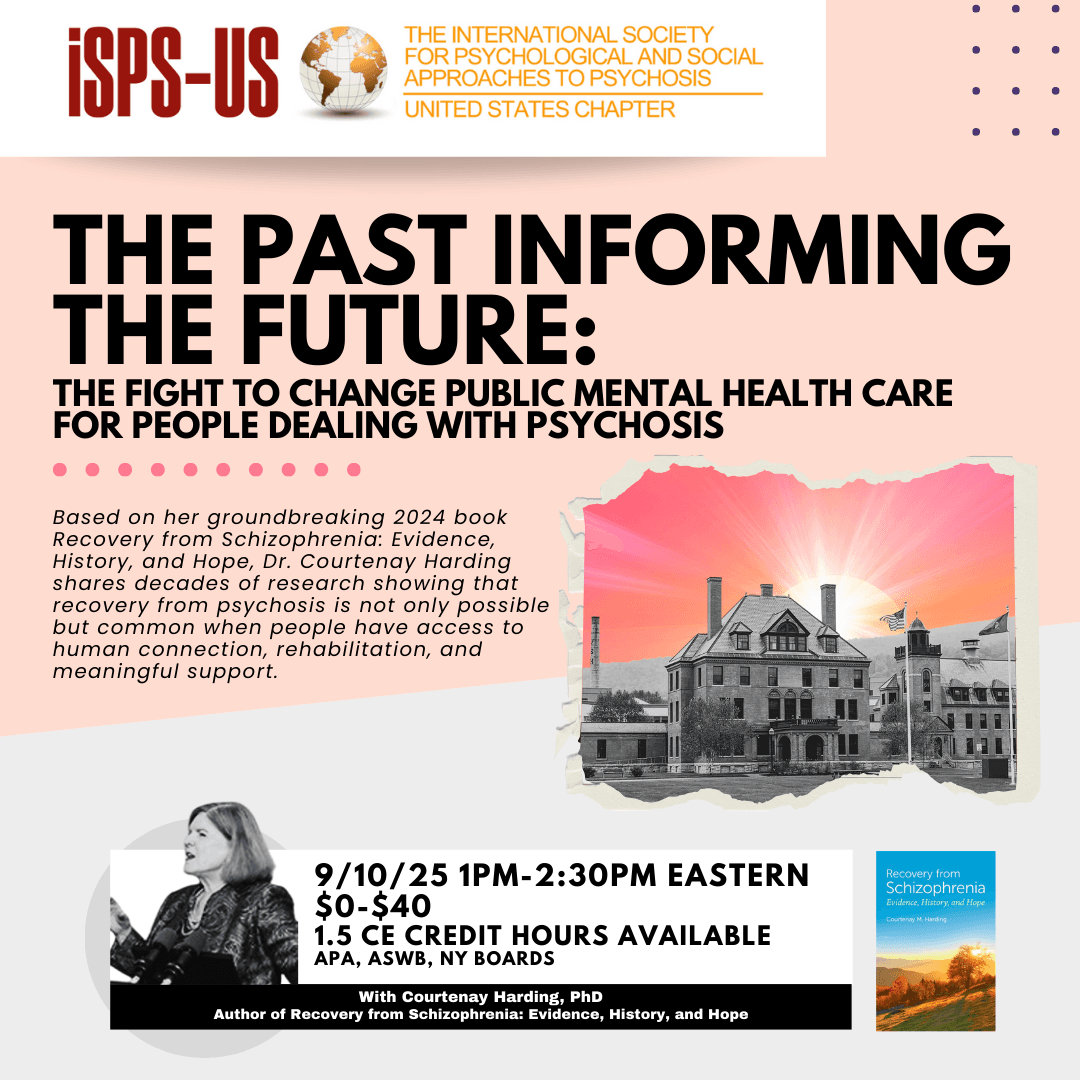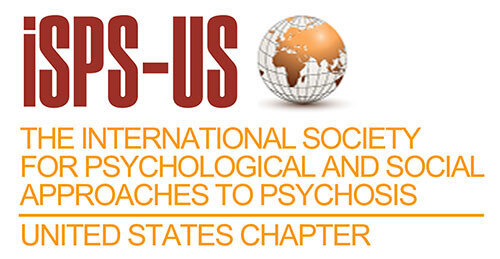
ISPS-US is proud to announce our September webinar, The Past Informing the Future: The Fight to Change Public Mental Health Care, with Dr Courtenay Harding, taking place on September 10th, 2025, at 1pm Eastern. CE Credits available*
Webinar Description:
The understanding of what helps people cope with psychosis has changed dramatically in the past 75 years. What sparked the revolution were several factors: patients taught providers what was needed, families joined as partners, some clinicians learned how satisfying it was to use a recovery model, and research from across the world with participants who were followed for decades found that recovery was indeed possible in many more cases than was once believed, with medication playing a much more minor role than expected.
This presentation draws from Dr. Courtenay Harding’s groundbreaking 2024 book, Recovery from Schizophrenia: Evidence, History, and Hope, which brings together over 30 years of research, clinical work, and system-level reform efforts to tell a radically hopeful and evidence-based story of recovery. The book synthesizes research from around the world, including two landmark U.S. studies in which Dr. Harding served as a lead investigator: the Vermont Longitudinal Study and the Maine-Vermont Comparison Study. These three-decade NIMH-funded studies followed individuals once considered profoundly disabled by “schizophrenia” and other serious mental illnesses and found that many significantly improved or fully recovered, especially when rehabilitation and human connection were available.
New ideas are still emerging, and the fight continues to change the prevailing model in community mental health, one still often centered on stabilization, maintenance, medication, and entitlements. This presentation explores how the lessons of the past can inform today’s advocacy and action, helping to build public mental health systems that genuinely support recovery.
• Can't attend live? Don't worry! The webinar will be recorded and sent to all registrants.
• *Need CE credits? Choose the CE Access Ticket. You’ll be able to attend the live webinar, and within 2 weeks of the event, we’ll send you a follow-up email with a link to the recorded session on our CE platform, CE-Go, along with a short quiz. CEs are awarded only after you complete the quiz; live attendance alone does not qualify.
• Unable to contribute? We encourage everyone to contribute towards our webinars where possible to ensure we can compensate our speakers and continue our vital mission. However, a limited number of free spots limited to people who are unwaged or on benefits can be accessed using the scholarship code SCHOLAR25
Presenter Bio:
Courtenay M. Harding, Ph.D., is a pioneering researcher, clinician, and educator whose work has reshaped understanding of recovery from serious mental illness. Trained at the University of Vermont and Yale, she held leadership and faculty roles at the University of Colorado School of Medicine, Boston University’s Center for Psychiatric Rehabilitation, and the Coalition of Behavioral Health Agencies in New York City, among others. She was a lead investigator on the landmark Vermont Longitudinal Study and Maine-Vermont Comparison Study, which, along with similar studies worldwide, demonstrated that many people once thought permanently disabled by schizophrenia could and did significantly recover. These studies induced her to create the Institute for the Study of Human Resilience at BU in order to investigate ways in which people reclaimed their lives.
Over her career, Dr. Harding has received more than 50 grants, authored numerous publications, presented in over 550 national and international forums, and consulted with 30 US states and 23 countries on system redesign. She has received more than 47 honors and awards, including the Alexander Gralnick Research Investigator Award from the American Psychological Association Foundation, for “exceptional contributions to the study of schizophrenia and other serious mental illness and for mentoring a new generation of researchers.” In 2024, at the age of 84, she published Recovery from Schizophrenia: Evidence, History, and Hope, with Oxford University Press, which was considered for a Pulitzer Prize.
